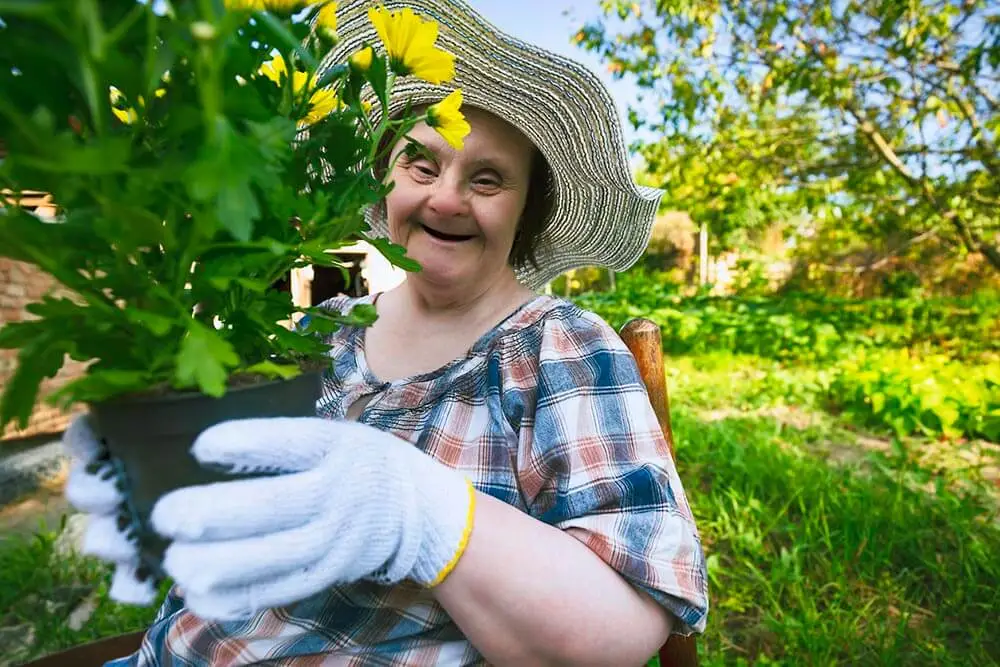The Link Between Down Syndrome and Learning Disabilities
Learning disabilities refer to difficulties developing and using language, reading, writing, logical and mathematical skills. Various factors, including genetic conditions like Down’s syndrome, can cause these challenges. People with Down’s syndrome often experience delays in cognitive development. They may have difficulty with memory, attention, problem-solving skills, and processing information, as well as speech and language development delays. In addition to intellectual disability, individuals with Down syndrome may have other learning difficulties, such as dyslexia, dyscalculia, and ADHD.
While Down syndrome and learning disabilities are often linked, not all individuals with Down’s syndrome will have learning disabilities, and the severity of the disability can vary widely between individuals. It’s essential to note that people with Down’s syndrome and learning disabilities have unique strengths and abilities that should be recognised and nurtured. Individuals with Down’s syndrome can learn and thrive with the right care and support. We at Unique Community Services are focused on delivering humanised care and tailored services to help people with Down’s syndrome develop their skills and reach their full potential.
Learning Disabilities and Down Syndrome
Down’s syndrome is a genetic condition that occurs when there is an extra copy of chromosome 21 in the body called down’s cells. This extra chromosome affects how the body and brain develop, leading to various physical and intellectual disabilities. One of the most typical challenges associated with Down’s syndrome is learning disabilities.
Learning disabilities are neurological conditions that affect an individual’s ability to process information in specific ways. For example, dyslexia is a learning disability that affects reading ability, while dyscalculia affects a person’s ability to understand and work with numbers.
Intellectual Challenges
People with Down syndrome may face intellectual challenges that affect their language abilities. Here are some of the challenges they may experience:
- Difficulty with expressive language
- Delayed language development
- Challenges with verbal memory
- Difficulty with comprehension
- Memory and recall challenges
- Limited vocabulary
Children with Down syndrome are in the process of learning and progressing, but often at a slower pace than their peers. Parents need to know that not all development areas are impacted similarly. Unique cognitive and behavioural characteristics of children with Down syndrome differ from those observed in typically developing children or children with other causes of intellectual disability.

Hearing and Vision Impairment
Although many individuals have knowledge about Down Syndrome and its typical characteristics, some aspects are often overlooked, such as the possibility of experiencing hearing and vision impairment.
Children with Down’s Syndrome are more likely to:
- Develop ear infections owing to variations in their anatomy
- Experience sensorineural hearing loss, which may manifest in babies born with Down’s syndrome
- Experience damage to their inner ear
People with Down’s syndrome also encounter vision challenges because of the physiological characteristics that affect the anatomy of the eye.
Some of the shared vision challenges that people with Down’s syndrome have include:
- Near – and farsightedness
- Strabismus
- Cataracts
- Glaucoma
- Blepharitis
- Tear ducts abnormalities
Besides difficulties with sight, speech, and hearing; some health problems are associated with Down’s syndrome, such as heart problems. Atrioventricular septal defect, patent ductus arteriosus, and tetralogy of Fallot are common conditions seen in children with Down’s Syndrome.
Behavioural and Emotional Challenges
Children with Down’s syndrome generally exhibit behavioural challenges that are not significantly distinct from those observed in typically developing children. As for adults with Down syndrome, there are several possible causes for changes in their behaviour.
Some of the common behavioural and emotional challenges that people with Down’s syndrome may experience include:
- Emotional regulation challenges
- Difficulty with social skills and communication
- Difficulty with abstract thinking
- Sensory processing challenges
- Impulse controlling challenges
- Challenges with self-esteem and self-image
Our clinicians have a profound understanding that behaviour is a form of communication. They are PBS trained and form strong relationships with the people we support in a person-centred way that focuses on the positive aspects of life, which allows people with Down’s syndrome to be viewed as more than just a behaviour that challenges in some way.


Short Attention Span
Children of all ages might show unique characteristics that point to a short attention span, including children with Down’s syndrome. These behaviours may include:
- Impulsiveness
- Reduced ability to focus
- Elevated levels of energy
These behaviours can also be characteristic of Attention Deficit Hyperactivity Disorder (ADHD), a condition that is often diagnosed in early childhood. This can make learning more challenging, as they may have short-term memory and difficulty processing verbal information.
For children with Down’s syndrome, learning efficiently may require more time, patience, and specialised teaching methods. It’s essential for parents, teachers, and caregivers to be aware of these challenges and to provide the necessary support and resources to help children with Down’s syndrome succeed.
Despite these challenges, children with Down’s syndrome can achieve remarkable things and should be encouraged to pursue their dreams and aspirations. They can thrive and reach their full potential with the right support and guidance.
Slight Motor Impairment Due to Low Muscle Tone
Due to their genetic condition, Down’s syndrome causes an extra chromosome and affects their development from birth. One major contributing factor to motor development delays is hypotonia, which can make it challenging for children with Down’s syndrome to master motor movements such as walking and maintaining balance.
While some babies born with Down’s syndrome may experience delays in motor development due to their genetic condition, they can still learn basic motor skills at a slightly older age. With the help of physiotherapy, people with Down’s syndrome can actively work towards building their motor skills and address any potential health problems proactively.
Through physiotherapy, people with Down’s syndrome can empower themselves to reach their full potential and overcome physical challenges that may arise due to their genetic condition.
People with Down’s syndrome can achieve their goals and lead fulfilling lives with patience and support.
How Unique Community Services Support Individuals with Down’s Syndrome?
One of the fundamental practices we support people with Down’s syndrome is by providing humanised care in the comfort of their own homes. Our vision and mission are to recognise them as unique individuals with their own needs and preferences. By taking the time to get to know each person and tailoring our support to their specific needs, we help them lead fulfilled lives.
Empathy is also a crucial aspect of supporting individuals with Down’s syndrome. Our highly trained clinicians better anticipate the needs of the people we support, provide emotional support, and create a supportive environment where they feel valued and respected. In addition to empathy and humanised support, understanding is essential in supporting people with Down’s syndrome. Having knowledge and expertise of the syndrome, its effects, and the different ways it may impact each person provides more effective support by understanding the challenges individuals with Down’s syndrome may face.
Contact us today at our two offices in Leeds and Manchester, and let us take care of your loved ones on the road to leading fulfilling and more independent lives.




